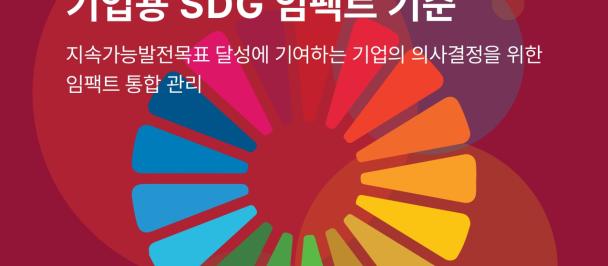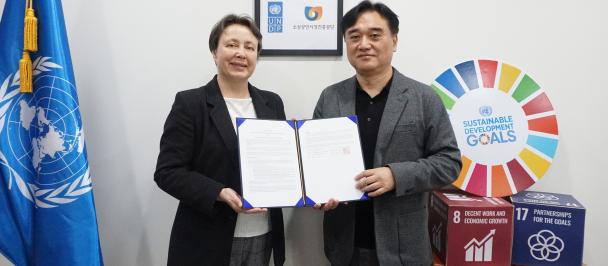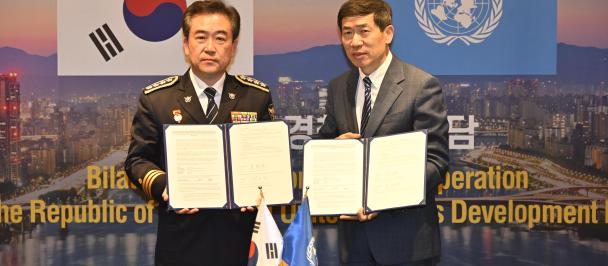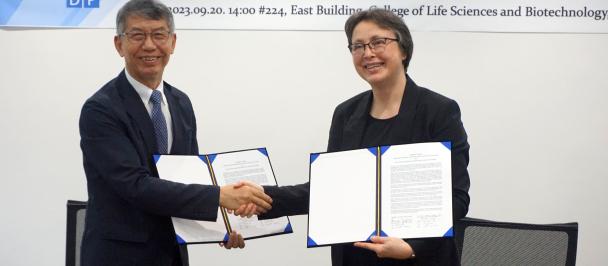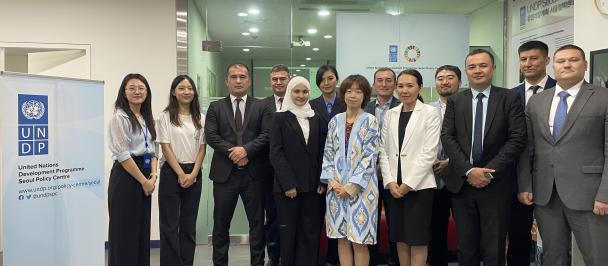The Republic of Korea is one of only four countries, and the only former developing country, to succeed in rehabilitating its forests following World War ll. Despite devastation of South Korea’s forests due to continuous occupations and war, the country successfully transformed its denuded lands into rich forests in less than half a century, thanks to strong policies and focused implementation. This makes South Korea’s unique experience timely for other countries that are looking to implement sustainable forestry initiatives, execute wildfire management, and promote national reforestation, including community forestry.
Based on a competitive process, three new partner countries were selected to take part in UNDP Seoul Policy Centre (USPC)’s environment-themed Development Solutions Partnership (DSP)s. Over the next year, the selected countries – Myanmar, Ghana, Timor Leste – will receive advisory support, peer-to-peer mentoring, and channeling of seed funding, as well as other related knowledge products and policy tools to address specific forestry-related issues. USPC will work with policy makers, experts, and practitioners, as well as institutions, including the National Institute of Forest Science (NIFoS) and the Korea Forest Service to share the knowledge and experiences needed in each partnership.
The three partnerships with Myanmar, Ghana, and Timor Leste will each be focusing on different aspects of Korea’s forestry experience. Myanmar was one of the three countries that lost the most forest area between 2005 and 2015, which has led the government to prioritize and commit to the restoration of degraded forests. The country also hopes to specifically focus on achieving positive results in national reforestation efforts through participatory, community forestry programmes, including seedling production, tree planting, forest patrol, and forest product harvesting.
For Ghana, forests play a significant role in the rural livelihood of the country’s population, yet there has been significant forest deterioration since the turn of the century. Wildfire and fire damage have contributed to the nation’s deforestation, and has also caused drought, loss of biodiversity, and livelihoods, among others. Accordingly, Korea will be sharing its methodology in forest fire management, including its remote monitoring system using drones. Korea’s early observation and warning system by local residents will also be suggested for contextualization to Ghana in order to increase efficient prevention, firefighting, and follow-up actions for the country’s forests.
Lastly, Timor Leste will be prioritizing capacity-building and development of its forest management system to combat the current conditions of the country’s existing forests, in which only one-third are considered dense with crown cover of more than 60%. Specifically, training and mentoring will take place with Timor Leste officials of local community groups and government agencies by experienced Korean institutions, organizations, and associated government agencies.
Each of the partner countries have already held a kick-starter webinar in January, and will continue to exchange and share their progress through various platforms with the ultimate purpose of contributing to the achievement of SDG 15, Life on Land. Study visits will be organized later this year both in Korea and the respective DSP countries, which will enhance visibility into Korea’s forestry policies and management system and in turn, provide greater impact on sustainable forestry initiatives in the three partner countries.
For more information regarding Korea’s sustainable forestry experiences and possible lessons for developing countries, please refer to the blog post by Sarwat Chowdhury, Policy Specialist at UNDP Seoul Policy Centre.

 Locations
Locations